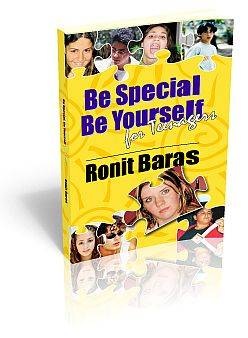
One of most difficult things for teens to do is ask for help. Most of the time, the emotional struggles they face at that age prevent them from treating the adults in their life as resources.
If you asked teens what they would like to change in their life, they would probably tell you about many things they want to change, but they do not know how to do this. After not knowing how to change for a while, they become frustrated and feel helpless. This is when the adults in their life have a responsibility to help them make that change.
For people to change, they need to find their strengths and use them to overcome challenges. Many times, it is the perception of the resources they have around them that will determine their strength in meeting these challenges.
When teens feel they have many resources they can call upon when they need help to change, they become more confident. However, if they feel resourceless, they tend to do many silly things.
How many times have you heard about a kid who was bullied at school so much that in the end he or she finally killed him/herself instead of asking for help? It is our job, as parents and educators, to make sure they feel free to ask.
 Understanding that they have the power to change things in their life is not something teens are born with. Even if their parents took care to plant this power in their heads in the early stages of their development, hormonal changes, pimples and other transformations in their body hit them hard and make them feel like they have lost control.
Understanding that they have the power to change things in their life is not something teens are born with. Even if their parents took care to plant this power in their heads in the early stages of their development, hormonal changes, pimples and other transformations in their body hit them hard and make them feel like they have lost control.
By not feeling in control of these things, they begin to feel they cannot change anything anymore, no matter how much they want to.
If they do express a need or a desire to change, we can help them by teaching them to use the resources they already have, be they internal or external resources.
Resources
A ‘resource’ in this context is an emotion, a belief, a skill, a talent or an ability they can apply, or a person, a group or a product they can use. A resource is something that can help them move forward towards their goals.
Examples of material resources include:
- Inspirational music
- Money
- A car, bike, scooter, etc
- Their own room
Examples of people resources include:
 Mom and dad
Mom and dad- Siblings
- Aunts and uncles
- Supportive teachers
- Counselors
- Family doctor
- Friends
- Role models in your community: someone in church, sport’s coach
Examples of emotional resources include:
- Emotional skills – confidence, flexibility, adaptability, sharing, caring and expression
- Knowledge – touch typing, meditation, karate and how to get more knowledge
- Attitude – positive focus, intuition, self motivation, vision, passion and inspiration
- Skill – building, fixing, carpentry, gardening, programming or drawing
- Beliefs – “I can do it”, “I am good at what I do” and “I can change”
Teach your teens they have the power to make the changes they want in their lives. Teach them to follow these 3 steps.
Three steps to success
 Assess where you are – What is bothering you? What is the situation right now?
Assess where you are – What is bothering you? What is the situation right now?- Decide where you want to be – What will make you happy? What are your goals?
- Identify resources – What or who can help you reach your goals?
I personally tend to think that emotional skills, attitudes and beliefs are resources that are hard to measure but have a huge influence on teens (well, actually, on everyone) and their ability to create change.
Because it is hard to measure them, you can always help your kids go through the 3 steps in the following way.
- Assess – Ask them to pick a number between 1 and 10 that best indicates how happy they are right now? You can break this down to school, family, money, etc.
- Decide – Ask “What needs to happen for you to think that you are happy (with this area)?” Aim for short-term goals – 3-6 months maximum. For each idea they have, ask “Will this be enough to make you happy?”
- Identify resources – Ask them what or who can help them get their goals. Share your own experience. Remember to tell them to add you to their resource list. Tell them, “I am always here to help in anyway you see fit”.
Another resource that may help you convince your teens that there are many resources around them is the book “Be Special, Be Yourself for teenagers“. The book contains 8 short stories of inspiring teenagers using the resources around them to achieve success.
By reading this book, teens discover they are much more resourceful than they thought they were.
Teens need to believe they can change and it is our job to help them realize this.
Happy “parenteen”,
Ronit

Buy this book for your teen and yourself
as a great resource!
 Mom and dad
Mom and dad Assess where you are – What is bothering you? What is the situation right now?
Assess where you are – What is bothering you? What is the situation right now?










